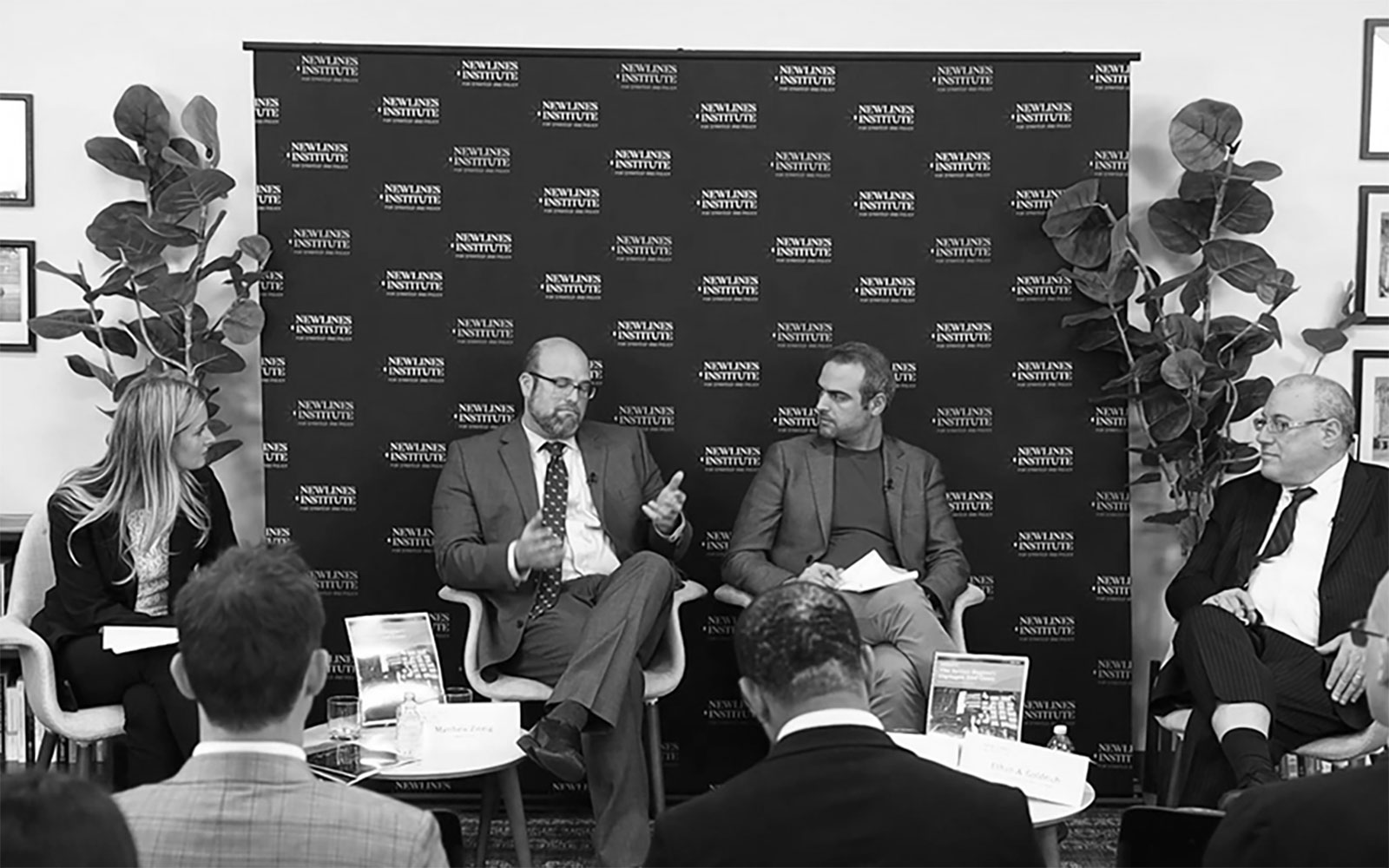
“I had to leave Syria in early 2012 as there were security concerns due to my activist work,” says Karam Shaar, “I haven't been able to return home since. It wouldn't be safe.”
Despite leaving Syria more than a decade ago, Karam has not lost touch with home, and he has continued working on Syria-related research from abroad.
Karam is a co-founder of the Observatory of Political and Economic Networks, which is part of Obsalytics.
“I have a background in economics, and my work focuses on data,” Karam says, “I could always see the gaps which existed in Syria’s political economy.”
In 2020, he was approached by Wael Alalwani, a fellow Syrian working on financial crime analysis. He suggested they join forces to launch the Observatory given their passion for data and their interest in shedding light on the mechanics of the Syrian regime and its enablers.
He and the Obsalytics team have created a database of mostly open source information on Syria’s regime networks.
The database has also been widely used by several stakeholders including decision-makers to improve their understanding of Assad’s regime – and to improve the ways states and international institutions can support Syrian civil society and regular citizens without benefitting corrupt politicians.
This database has also been used in further research conducted by the team in collaboration with the Syrian Legal Development Program to showcase how human rights abusers and sanctioned individuals in Syria are benefitting from international contracts and aid flowing into their country.
“Our database shows many cases of corruption, and how corrupt individuals have made a fortune from, for example, trade with ISIS or selling narcotics,” Karam says, “At the Observatory, we explain these illicit networks and their activities.”
“Many foreign governments changed the way they work in Syria in light of the information we unveiled,” Karam says. “We also aim to inform average Syrians about what’s really happening in the country. By exposing corruption, we help people think for themselves and counter state propaganda.”
“Initially, we thought of using only secondary data, that is, information already publicly available,” Karam says. “However, we quickly expanded, and we are now using primary data, too. We scrape and graph data from sanctions’ lists, media, UN procurement, and the Syrian Gazette, which publishes lots of information on companies, appointments and asset seizures. We also harvest data from obituaries, court rulings, and other open-sources. For special projects, we hire field researchers to collect primary data and verify secondary data for us.”
“Analysing official documents, such as the Gazette, often means dealing with hundreds of thousands of pages filled with information, but if you have the right tools to analyse them, there's a treasure trove in there,” he adds.
Obsalytic’s report mapping Syrian contractors with the United Nations has been one of its biggest success stories. “This research showed that at least 23 percent of the UN funding which comes primarily from western countries actually goes to people sanctioned by the same western countries,” he says.
“While the findings may be shocking, all the data – on procurement, suppliers, and sanctioned individuals – was out there in the public domain. What we did was to map and distil this information from databases and thousands of scanned pages, analysing it, and presenting the results to the world.”
The open data also sheds light on the way corruption works in Syria – with many businesses and private companies serving as a façade for government-linked operations, and where the regime expects a cut from major corporations in exchange for access to different industries and public contracts.
“We also worked with investigative journalists on other topics that showcase how the Syrian regime creates layers of companies to hide its activities,” he says. “In the Observatory’s latest project, we demonstrated how the state is involved in the narcotics business and makes huge profits out of it.”
The database can be accessed by other NGOs, research centers, governmental or international institutions – upon request.
“We want the data to be used for societal impact,” Karam says. “We favour a partnerships-based approach such as cooperating with organisations that analyse Syria’s political economy, business networks, actor mapping sanctions, narcotics, or other relevant topics.”
“We measure our success by instigating change on the ground,” he says, “For example, after we published our report on the UN, the procurement department of one of the agencies was moved from Damascus to Amman, the capital of Jordan to limit the risk of direct interference.”
“We also see public interest in our work,” he says, “Our voices have been heard on global platforms such as The Guardian, Chatham House, The Washington Post, and The New York Times. This helps us feel that we're able to have a long-term impact on policymaking around Syria.”
“These positive developments are in many ways thanks to the EED’s support, that gave us our initial push,” he says.
This article reflects the views of the grantees featured and does not necessarily represent the official opinion of the EED.